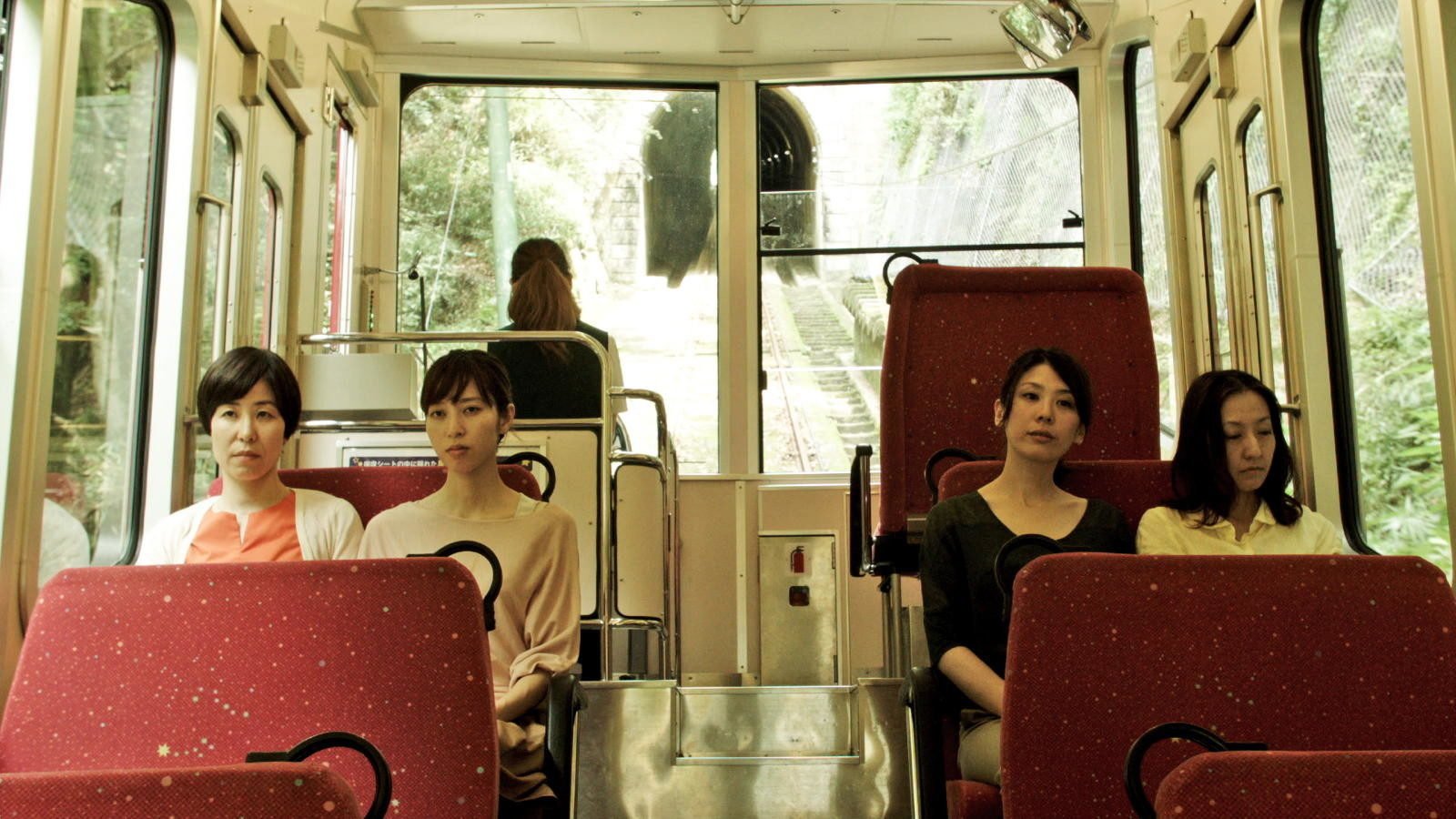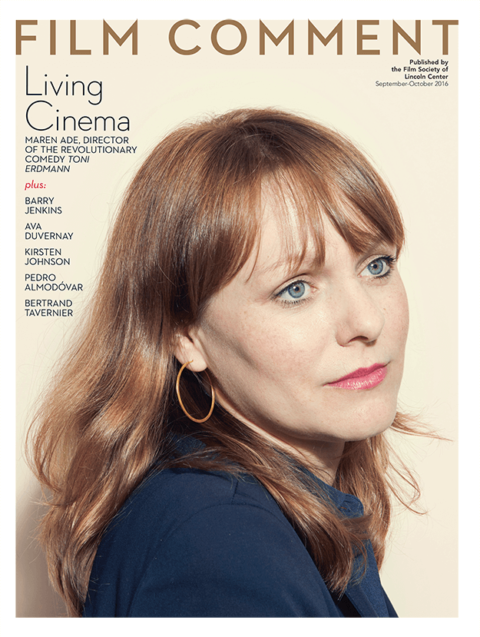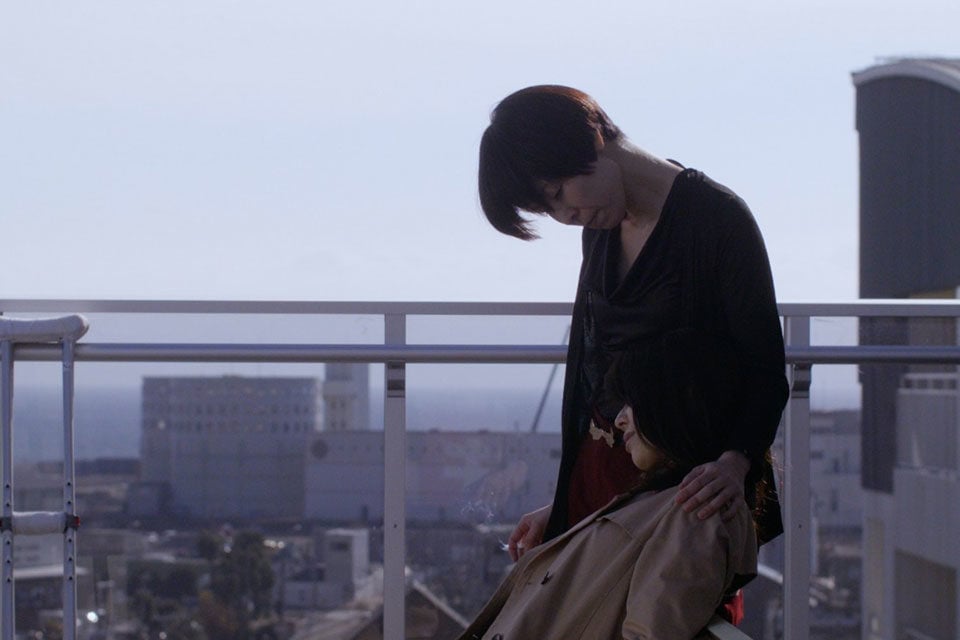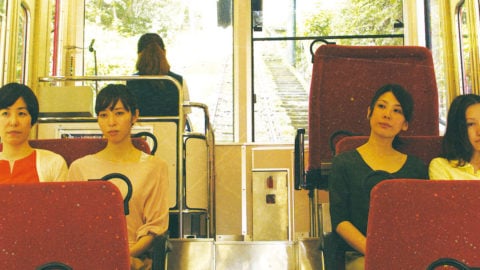
Review: Happy Hour
Few recent art-house films have been saddled with a reputation for being long more than Ryusuke Hamaguchi’s Happy Hour has. Yet Hamaguchi, compared to established marathoners like Lav Diaz and Wang Bing, is a relative unknown, with a number of films under his belt but until now a low profile outside his native Japan. Viewers intimidated by the film’s 317-minute runtime will be pacified by the familiar grammar with which Hamaguchi composes his longhand drama—which isn’t to say that Happy Hour is merely a kinder, gentler take on the Very Long Movie.

Friends Jun (Rira Kawamura), Sakurako (Hazuki Kikuchi), Fumi (Maiko Mihara), and Akari (Sachie Tanaka) are all thirty-something bourgeois women in Kobe just trying to get by, obtaining a quantum of comfort from their friendship while the world proves underwhelming, disappointing, and at times outright hostile. Akari is a nurse categorically unwilling to suffer fools (least of all her subordinates on the job). Timid Sakurako leads a life of quiet desperation as a housewife with an overbearing live-in mother-in-law, a doctor husband who is nearly devoid of qualities, and an adolescent son who’s starting to discover his inner horn-dog. Fumi valiantly manages a nonprofit arts space while fretting over whether her editor husband, Takuya (Hiroyuki Miura), might have eyes for a young female author he’s working with. And Jun is entering a nasty divorce from her emotionally dead biologist husband, Kohei (Yoshitaka Zahana), after confessing to a past affair.
Jun’s divorce, which she keeps on the down-low too long for hyper-sensitive Akari’s liking, serves as the catalyst for the women to begin reevaluating the state of their lives, their relations with one another, and their senses of themselves. What follows is a rhythmically varied and consistently moving succession of episodes in which secrets accidentally surface at awkward group dinners, couples bicker behind closed doors, and day trips together function as essential reprieves.

The first act of Happy Hour contains a long scene that’s among the very best in recent movies: a workshop (think team-building seminar meets Happening) organized by Fumi and led by an enigmatic artist who goes by Ukai (Shuhei Shibata). This scene has drawn apt comparisons to the rehearsal scenes in Jacques Rivette’s Out 1 and L’Amour fou, but what makes this digressive foray into real-time cinema so rich is where Hamaguchi winds up taking Ukai later in the film. He’s first presented as a handsome guru-type who became famous for fashioning gravity-defying sculptures of debris after an earthquake. But the full scope of Ukai’s personality emerges piecemeal across various interactions with the four protagonists, and he comes to more closely resemble the mind-controlling amnesiac villain from Kiyoshi Kurosawa’s Cure than some sort of benevolent land artist. (It seems relevant to note here that Hamaguchi studied under Kurosawa at Tokyo University of the Arts.) What’s more, the fact that the script of Happy Hour was the product of extensive improvisational workshopping by Hamaguchi and an assortment of amateur thespians slyly implies a knotty point of identification between the director and this strange, sometimes menacing figure.
Another long scene in the film confounds our narrative expectations profoundly: a reading at Fumi’s arts space by the author she suspects her husband of lusting after, followed by a Q&A that winds up being led by Kohei, an improbably sensitive and capable moderator. The scene is nearly as audacious in its use of eventful duration as the workshop sequence with Ukai, and the subtle ways in which it distorts what we thought we knew about the film’s supporting players are as exhilarating as the attendees’ feedback is plausibly interminable.
Buoyed by four captivating performances from its unheralded actresses, Happy Hour is a fascinating, towering confection of contradictions: a modest epic; a work that simultaneously resembles both contemporary television drama and art cinema at its airiest; a film you feel like you’ve seen before but that somehow never ceases to surprise. I suspect we’ll be talking about this one for some time to come—and not because of its length.
Dan Sullivan is the assistant programmer at the Film Society of Lincoln Center.




